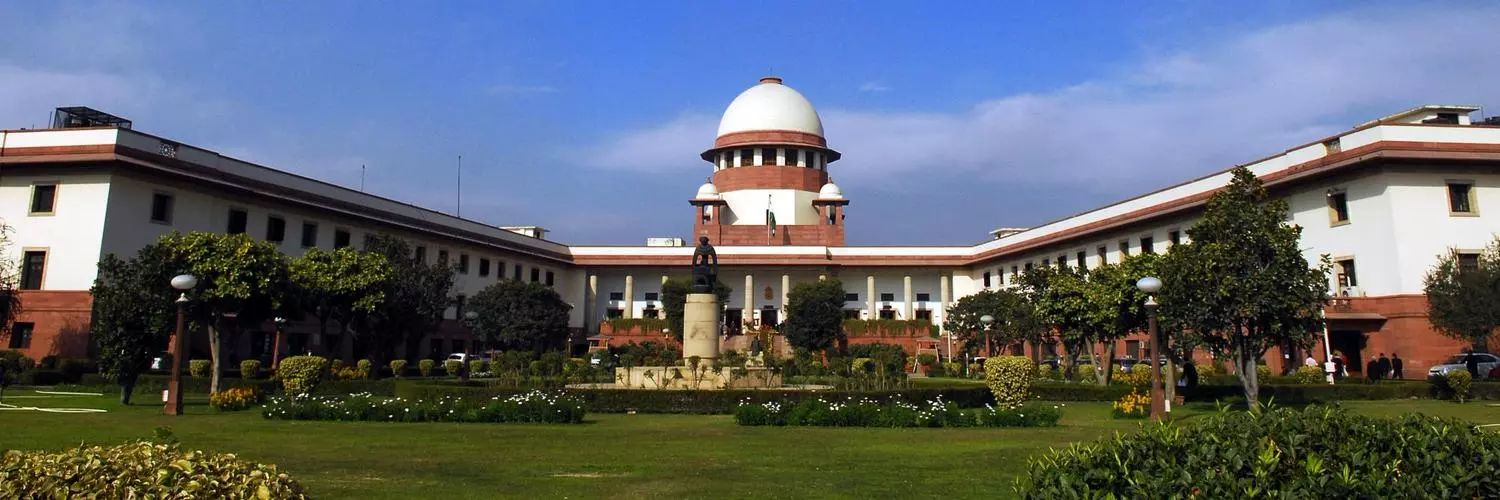
Act according to law, SC tells TN, after row over Ayodhya event
Petitioner Vinoj said Tamil Nadu Police are rejecting permission to hold special prayers and preventing live telecast of the Ayodhya consecration ceremony

The Supreme Court on Monday told Tamil Nadu authorities to act in accordance with the law after allegations of a ‘ban’ on live telecast of the Ram temple consecration ceremony in all temples in the state.
Justices Sanjiv Khanna and Dipankar Datta said no one was bound to abide with any oral orders after it was petitioned that such an oral order was given on January 20.
Tamil Nadu version
The bench took on record a statement of senior advocate Amit Anand Tiwari for Tamil Nadu that there are no restrictions on 'puja archana’ in temples or live telecast of the Ayodhya ceremony.
Tiwari said the plea was "politically motivated".
The bench said: "We believe and trust that the authorities will act in accordance with law and not on the basis of any oral instructions, which, as stated on behalf of respondent, have not been issued.”
Explain, SC says
The bench asked the authorities to put on record the reasons and maintain a data of applications allowed for 'puja archana' as well as live telecast of the consecration ceremony and those disallowed.
Solicitor General Tushar Mehta, appearing for the Centre, said, "I am shocked at this state of affairs."
"Let a strong message go from the highest judiciary of the country to the state government that the constitution still governs the nation and it applies to Tamil Nadu also."
Justice Khanna
He added that nobody can be prevented from performing religious rituals.
The bench termed the reason given by Tamil Nadu Police officials that members of other communities reside in the vicinity as a ground for denying permission as "prima facie not justified and acceptable."
Justice Khanna said: “We are living in a society where there are homogenous communities. You cannot prevent religious activities only on the ground that community A or community B is living in a particular area. If there is any law and order situation, the application may be rejected. But not this way."
Justice Datta
The bench told Tiwari: "Now, we will know exactly how many applications you have allowed, and how many have been rejected. If the applications are rejected on the ground that other communities reside in the vicinity then, you will be in trouble."
Justice Datta said that if orders banning religious activities in areas inhabited primarily by members of other faith were to be implemented, then minority communities would never be allowed to hold a prayer meeting.
Law and order
He asked Tiwari to peruse the order annexed in the petition, and said: "The reason provided in this order is that Hindus are in the minority here, and if they are allowed to hold prayer meetings, that will cause problems in the society. Is this a reason?"
Tiwari tried to say it was related to the law and order situation. Justice Datta said: "You regulate it then. You have the powers to regulate these processions by passing orders but you can't reject the application for permissions like this."
Curbs imposed
During the hearing, senior advocate Dama Seshadri Naidu, appearing for petitioner Vinoj, a Tamil Nadu resident, said police are rejecting permissions to hold special prayers and even preventing live telecast of the consecration ceremony at Ayodhya.
The plea contended that the Tamil Nadu government run by the DMK has banned live telecast of the "pran prathishta" of Lord Ram at Ayodhya in all temples across the state.
It was also alleged that the government has also banned all kinds of prayers, and 'annadanam' (poor feeding) 'bhajans' on the occasion.
(With agency inputs)
